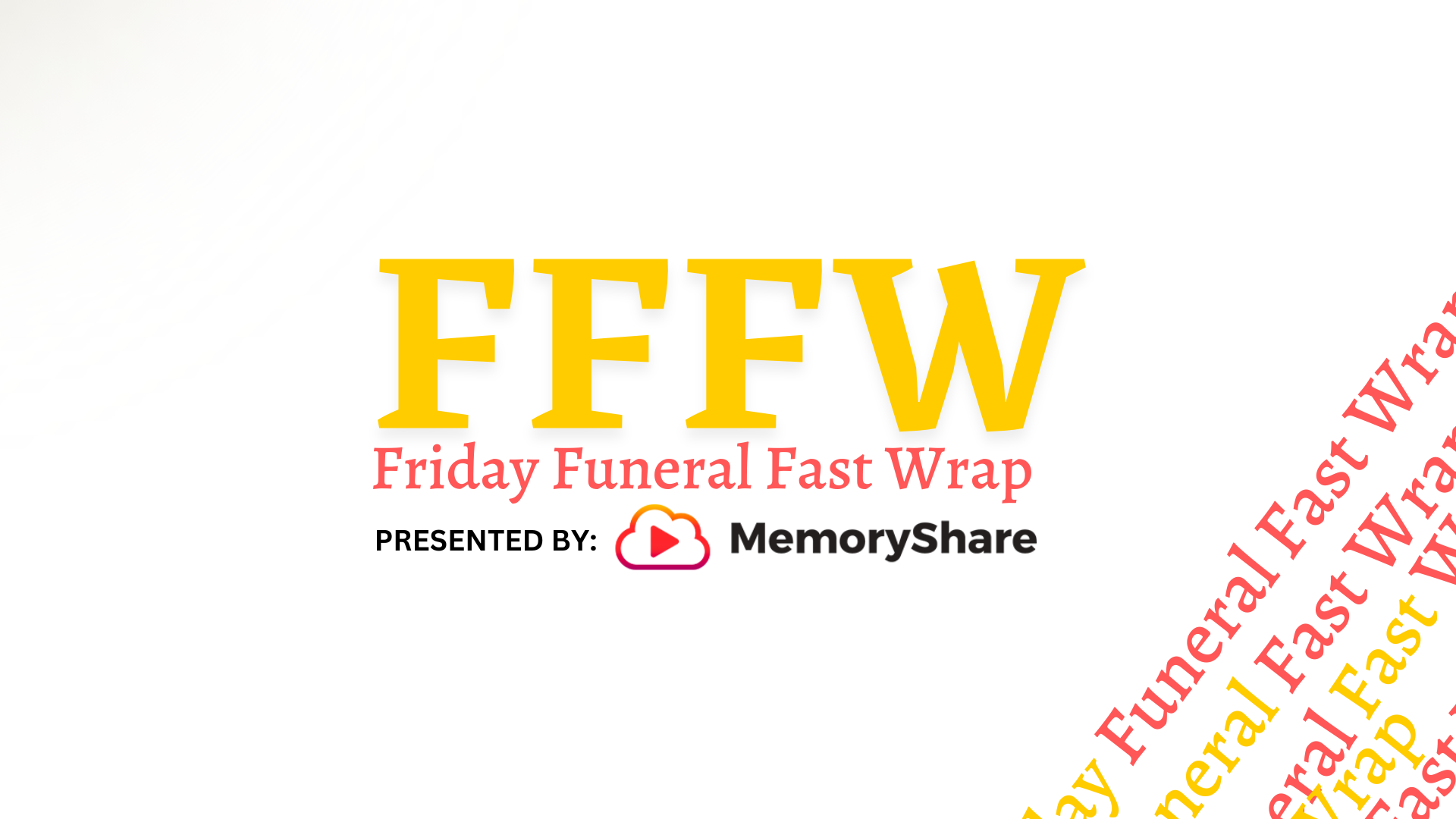Guest Blog: Our Calling: It?s Difficult, But It?s Worth It
 In my capacity as manager at our cemetery?s tiny Jewish section I, and my voluntarily-working-overtime operations guy, was present for the graveside service for a 95-year-old highly accomplished and much-loved man listening to his grief-struck family eulogize him. He was really an amazing person?held 16 patents for all sorts of things, including being part of the group who developed the ball-point pen. And he sired four accomplished sons.
In my capacity as manager at our cemetery?s tiny Jewish section I, and my voluntarily-working-overtime operations guy, was present for the graveside service for a 95-year-old highly accomplished and much-loved man listening to his grief-struck family eulogize him. He was really an amazing person?held 16 patents for all sorts of things, including being part of the group who developed the ball-point pen. And he sired four accomplished sons.
Last November one of his sons had come to me to choose graves for his parents. His father, the man whose graveside I was today witnessing, had been expected to die within days. Instead, his mother died unexpectedly a couple days later, and his father lived on.
When the family came to their mother?s November committal service we suggested they drive their car right over the grass to the graveside so their father could at least roll down the car-window and hear his wife?s service, which they did. He then rallied his strength and was helped to the canopy, with his walker, through the cold November downpour so he could properly honor his wife.
At today?s Sunday committal service, while the family was honoring and remembering their father, a car pulled up in the parking area outside the cemetery . I wondered if these were late-comers to this service… It was instead the young, heartbreakingly young, parents of the little three-year-old boy we had buried last summer, and these still-grieving parents brought stones to his grave, while I watched nearby, then stood and held each other and cried, cried.
The contrast just made me want to cry too?as it does now. Their poor little guy?he died in a drowning accident?never had a chance to be anything like the wonderful man whose history I was hearing. These young parents were grieving less than 25 feet away and had to be able to hear the old man?s eldest son, talking between his sobs, of the talent and accomplishments and loving nature of his father.
I fought off the urge to go over and hug the young couple. We had developed a friendly relationship between my helping them choose their son?s grave, overseeing his burial and designing his little gravestone. I know we see this stuff every day ? families mourning their loss ? but the blinding contrast between the sadly short life of a three-year-old baby and a 95-year-old man was almost more than I could bear at one time. I was already crying internally about today?s family?s loss. To see this young couple grieving at the same instant? well, I know we?ve all been there. It was ? how to put this? To use an ancient term: it was heavy.
Sometimes it?s very hard to understand why I love and stay with this profession, and to live with how hard it is to be composed when I work with my families. Sometimes I want nothing more than to break down and cry with them but I know it wouldn?t be appropriate nor helpful to them. Nor to me really?because if I let myself get too deeply involved in the tragedies that – let?s face it ? every family suffers when their loved one dies? and that we all see every day, I wouldn?t be able to get out of bed in the morning.
As one of my cemetery crew members remarked to me one day: ?All I ever see is people grieving. Bringing flowers, visiting graves. Standing at those committal services I just see people cry. Sometimes I wonder why I stay in this job,? he said. ?It?s such a downer so much of the time.? But the ones who care stay.
And we do stay, don?t we? Some of us are called for reasons of religious faith. A paltry few, thank goodness, are called because they think there is money to be made. Some of us don?t know why or how we were called. But we were, and we stay, and sometimes we struggle to understand.
So we find some joy in our other lives. My daughter is grown and gone to England for grad school and the house is pretty quiet. I got myself a puppy who, as I write this, is happily going crazy playing with the ?puppy in the mirror? and bouncing off the walls.
Life goes on. Joy is where we find it (even if, like my puppy found, it?s just a reflection of ourselves). Grief is in our lives every day. We deal with it on the job and we take it home with us. If we?re lucky and we work at it we find a way to live through it at work and to celebrate our lives at home.
But if you are like me, we never forget the grief of the families we serve, and we never are able to divorce ourselves from them. We walk through the fire with them, forge relationships with them and we have to realize that they will never forget their interactions with us. So we have to do our very best to help them through it.
And we never forget our relationships with them. So the best of us strive to make those relationships positive from that first hand-shake to that final thank-you, no matter how difficult it gets.
Rock on, my friends. We have our calling and we must honor it.
Author bio:
Judy Faaberg has worked in the deathcare profession since she was 20 years old, beginning in 1977, as receptionist at Greenacres Memorial Park in Ferndale, Wash. and eventually became assistant manager. Simultaneously she worked as an assistant auditor of cemetery endowment care and prearrangement trust funds for the Washington State Cemetery Board. In 1990 she accepted the position of executive director for the then-Washington Interment Association (now the Washington Cemetery, Cremation and Funeral Association). Also in 1990 Judy was appointed by Gov. Booth Gardner to serve on the state Cemetery Board, which she did for five years. Both as an employee of and member of the cemetery board, Judy assisted in revising and drafting numerous cemetery regulations. In 1997 she became executive director for the Northwest Cremation Association as well. In 2000 she accepted the position of manager of Abbey View Memorial Park in Brier, Wash. (owned by Evergreen-Washelli Memorial Park and Funeral Home), which she held until June 2008. Judy continues with the WCCFA (the NWCA was absorbed by the WCCFA in 2004) and is in her twentieth year with the association. Judy has also served on ICCFA committees and is a member of ICCFA?s ?Not Ready For Eternity Players,? an loosely-knit ensemble that occasionally performs presentations at ICCFA conventions. Judy?s love for the death care profession and for writing leads her often to compose op-eds or essays on all things death-care. Her writings have been published in several state and national death-care publications, as well as the newsletter (the ?Insider?) she edits for the WCCFA. She also blogs on the ICCFA website. You can contact Judy at princessofdarknessinred@yahoo.com, or at 360-668-2120.



